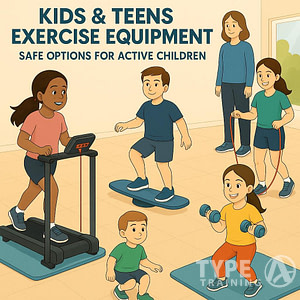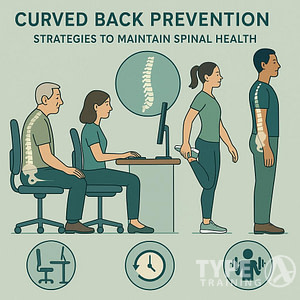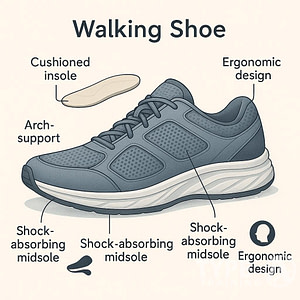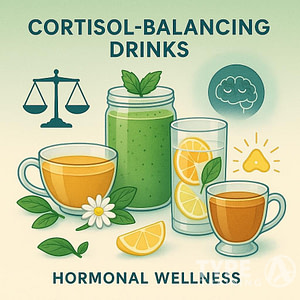Getting enough good sleep is crucial for both your body and mind, yet it can often be a struggle. The lack of sufficient sleep not only affects how you feel but also influences your daily activities.
The routines and practices you incorporate into your daily life, collectively known as sleep hygiene, play an essential role in determining the quality of your sleep.
Improving your sleep involves several specific strategies.
By assessing and adjusting your sleeping environment, you can set the stage for restful nights.
Popular posts:
Creating a consistent sleep schedule and taking practical steps to enhance your nighttime routine can also help.
These measures can help you not only fall asleep more easily but also maintain a deep, restorative sleep that leaves you refreshed in the morning.
1. Upgrade Your Mattress and Bedding
Investing in the right mattress and bedding is essential for achieving restful sleep.
A supportive mattress and pillow are key to minimizing back pain and maintaining spinal alignment.
For added comfort, choose sheets and blankets that are soft to the touch and able to regulate temperature through the night.
| Item | Feature |
|---|---|
| Mattress | Support & Comfort |
| Pillow | Spinal Support |
| Sheets & Blankets | Softness & Temperature Control |
Could Sleep Be an Issue for You?
Sleep difficulties can indicate various sleep disorders like insomnia, sleep apnea, or restless legs syndrome.
Evaluate your sleep health by considering the following symptoms:
- Loud Snoring
- Daytime Fatigue
- Shortness of Breath upon Waking
| Indicator | Possible Sleep Disorder |
|---|---|
| Snoring | Sleep Apnea |
| Daytime Tiredness | Narcolepsy, Insomnia |
| Waking Short of Breath | Sleep Apnea, Parasomnia |
Sleep disturbances may also relate to health conditions such as mental health issues or diabetes.
Addressing these symptoms promptly is important for overall well-being.
2. Reduce Light Exposure
Blocking out excess light during sleep can significantly enhance your rest.
Blackout curtains are effective at blocking external light from your windows. A quality sleep mask is also a helpful tool to cover your eyes and minimize light interference.
By reducing light exposure at night, you aid your body in producing melatonin, a sleep-supporting hormone crucial for regulating your sleep cycle.
3. Reduce Disturbance from Noise
Maintaining a quiet environment is crucial for a restful sleep setting.
If you can’t eliminate external sounds, consider using a fan or a white noise machine to cover disruptive noises. Earplugs or noise-canceling headphones can be effective alternatives.
| Method | Description |
|---|---|
| Fan | Naturally produces a constant sound. |
| White Noise Machine | Generates a soothing background noise. |
| Earplugs | Block external sounds from reaching the ears. |
| Headphones | Ideal for playing calming music or sounds. |
4. Adjust the Thermostat to 65 to 68 Degrees Fahrenheit
Creating a sleep-friendly environment involves setting your thermostat between 65 and 68 degrees Fahrenheit.
This range helps your body stay at a comfortable temperature during nighttime sleep. A cooler room can minimize distractions, enabling you to sleep more soundly.
Temperature Guidelines for an Ideal Sleep Environment:
| Temperature (°F) | Description |
|---|---|
| 65-68 | Recommended for optimal sleep |
Finding the temperature that suits you can significantly enhance your rest.
5. Aim for At Least Seven Hours of Sleep
Achieving quality sleep requires careful planning of your sleep schedule.
Determine a consistent bedtime by counting back from your set wake-up time to ensure you have at least seven hours devoted to rest.
Prioritize good sleep hygiene by setting aside additional time to unwind before bed. This can help enhance sleep quality and reduce daytime sleepiness.
This approach aids in preventing sleep deprivation and managing sleep debt effectively.
| Sleep Hygiene Tips | Description |
|---|---|
| Consistent Schedule | Wake up and go to bed at the same time daily. |
| Prepare for Sleep | Allocate time for relaxation before sleeping. |
| Manage Sleep Debt | Avoid accumulating missed sleep hours. |
6. Consistent Alarm Setting Each Day
Creating a regular sleep schedule requires you to wake up at the same time daily.
This consistency helps your body adjust to a healthier routine.
Here’s a simple approach to align your sleep patterns:
| Day | Wake-Up Time |
|---|---|
| Weekdays | 7:00 AM |
| Weekends | 7:00 AM |
By maintaining uniformity, even on weekends, you reinforce your sleep cycle, reducing the temptation to sleep in. Ensuring a regular wake-up time supports a robust and effective sleep routine.
7. Limit Naps to Around 20 Minutes
To enjoy the benefits of a nap without disrupting your nighttime rest, aim to keep naps short, ideally about 20 minutes.
This duration is long enough to improve alertness without entering deep sleep, which can lead to grogginess.
Avoid late-day naps; the early afternoon is the optimal time.
By keeping your naps brief and well-timed, you’re more likely to maintain a consistent sleep cycle.
| Optimal Nap Tips |
|---|
| Duration |
| Timing |
| Goal |
8. Ease Yourself for Half an Hour Before Bed
Creating a calming pre-sleep routine can significantly enhance your ability to achieve restful sleep.
Spend the 30 minutes before bedtime engaging in soothing activities to help relax your mind and body.
Consider these methods:
- Quiet reading: Choose a
book you enjoy. - Gentle stretching: Focus on low-impact movements.
- Soothing music: Opt for calming melodies.
- Relaxation techniques: Try mindfulness, controlled breathing, or progressive muscle relaxation.
| Activity | Description |
|---|---|
| Quiet Reading | Select a |
| Gentle Stretching | Engage in mild exercises to relax muscles |
| Soothing Music | Listen to soft, tranquil tunes |
| Relaxation Techniques | Try breathing exercises or meditation |
9. Turn Off Devices an Hour Before Sleep
Using electronics like tablets, smartphones, and laptops before bed can interfere with relaxation due to the stimulation they provide.
Blue light emitted by these devices can reduce melatonin production, a hormone essential for sleep.
To promote restful sleep, it’s beneficial to disconnect from devices at least an hour before hitting the sheets.
| Device Type | Impact on Sleep | Suggested Action |
|---|---|---|
| Smartphones | Stimulates brain activity | Turn off 60 minutes before |
| Tablets | Suppresses melatonin | Disconnect early |
| Laptops | Increases stimulation | Shut down pre-bedtime |
10. Enhance Your Day with Half an Hour of Daylight
Your body’s internal clock thrives on light exposure, playing a crucial role in regulating your circadian rhythm.
Consider taking a brief stroll outside or opening your windows to allow natural light to permeate your space in the morning.
This practice can help keep your sleep-wake cycle in check.
| Light Source | Suggested Duration |
|---|---|
| Morning Sunlight | 30 minutes |
| Overcast Conditions | Up to 30 minutes |
| Light Therapy Box | Follow doctor’s advice |
11. Engage in at Least 20 Minutes of Physical Activity Each Day
Incorporating at least 20 minutes of daily physical activity into your routine can significantly benefit your health. These benefits include improved energy levels, better regulation of body temperature, and enhanced sleep quality.
Be mindful: engaging in intense activities right before bedtime might disrupt your ability to relax.
| Time of Day | Activity Recommendations |
|---|---|
| Morning | Moderate activities like yoga or a brisk walk |
| Afternoon | Aerobic exercises such as jogging or cycling |
| Evening | Light stretching or walking to avoid sleep issues |
12. Avoid Caffeine After Mid-Afternoon
Caffeine is a common stimulant found in drinks like coffee, tea, and sodas. It’s often used to combat tiredness during the day, but consuming it too late can interfere with your ability to sleep soundly at night. To promote better sleep, it’s wise to stop consuming caffeine by mid-afternoon. Here’s a quick guideline:
| Caffeinated Beverage | Cut-off Time |
|---|---|
| Coffee | After 2 p.m. |
| Tea | After 2 p.m. |
| Sodas | After 2 p.m. |
Monitoring your intake can play a crucial role in enhancing your sleep quality.
13. Pay Attention to Alcohol Intake Before Bed
Alcohol might make you feel sleepy initially, prompting some to enjoy a nightcap before bed. But, it can interfere with sleep quality, affecting deep and REM sleep stages. To enhance your sleep, it’s advisable to manage alcohol consumption and consider alternatives like herbal tea or warm milk. Here’s a quick comparison:
| Substance | Impact on Sleep |
|---|---|
| Alcohol | Initial drowsiness followed by disrupted sleep |
| Caffeine | Increased alertness, potential for insomnia |
Reducing alcohol before bedtime can aid in achieving restful sleep.
14. Have Your Dinner a Few Hours Before Sleep
Enjoying your meal a few hours before sleeping can aid in avoiding disruptions related to digestion. Consider steering clear of heavy, greasy, or spicy dishes later in the evening. If you desire a small treat before bed, choose a light option.
| Foods to Consider | Foods to Avoid |
|---|---|
| Light snacks | Fatty meals |
| Low-fat options | Spicy dishes |
| Easy-to-digest | Large portions |
15. Reduce Nicotine and Tobacco Smoke Contact
Nicotine acts as a stimulant, which can interfere with your sleep cycle, especially when used in the evening. Exposure to smoke, including secondhand smoke, is linked to various sleep issues like trouble falling asleep and interrupted sleep. Avoid nicotine products before bedtime to promote better sleep quality.
| Factors | Impact on Sleep |
|---|---|
| Nicotine Use | Disrupts sleep patterns |
| Smoke Exposure | Causes sleep disturbances |
By limiting your contact with nicotine and smoke, you enhance your chances of achieving more restful sleep.
16. Limit Your Bed to Rest and Intimacy Only
Creating a strong link between your bed and sleep is essential for good rest. By using your bed exclusively for sleep and intimate moments, you promote a mental association that reinforces its primary functions. Engaging in other activities in bed might disrupt this connection. Consider the following table for guidance:
| Activity | Bed Use Recommendation |
|---|---|
| Sleeping | Yes |
| Reading | No |
| Watching TV | No |
| Working | No |
| Intimacy | Yes |
17. Leave Your Bed After 20 Minutes
To prevent associating your bed with sleeplessness frustration, it’s key to leave if you can’t sleep after about 20 minutes. Engage in a calming activity under dim light, like reading or deep breathing.
Tips to Enhance Your Sleep Habits:
| Action | Benefit |
|---|---|
| Avoid electronics | Reduces stimulation |
| Perform calming activities | Promotes relaxation |
| Return to bed when tired | Enhances sleep readiness |
Straying from screens and time-checking aids in maintaining an environment conducive to relaxation, ensuring the bed remains a sanctuary of rest.
18. Maintain a Sleep Journal
A sleep journal is a practical tool to monitor your nightly rest. By recording your sleep habits, you can identify patterns affecting your sleep quality. Use it to note any changes in your routine or environment.
| Time | Activity | Notes |
|---|---|---|
| Before Bedtime | Consumed herbal tea | Felt relaxed, fell asleep quickly |
| Bedtime | 10:00 PM | Slept soundly until 3:00 AM |
| Night Awakenings | Briefly awake at 3:00 AM | Went back to sleep after 10 minutes |
Experimenting with different schedules? Your journal acts as a record, showing how modifications impact your rest.
19. Think About Using Supplements
When looking to enhance your nightly rest, it could be beneficial to consider supplements. Melatonin is widely used to help decrease the time it takes to fall asleep. Additionally, valerian, chamomile, and glycine are natural options that may aid your sleep.
Remember to consult with your healthcare provider before starting any new supplement regimen. Dietary supplements aren’t tightly regulated by the FDA. Here’s a quick look at some options:
| Supplement | Potential Benefit |
|---|---|
| Melatonin | Reduces time to fall asleep |
| Valerian | May promote relaxation |
| Chamomile | Can support calmness for better rest |
| Glycine | Could help improve sleep quality |
20. Consult a Physician
Significant sleep disturbances should prompt you to reach out to a medical professional. If your sleep troubles persist, worsen, or begin to impact your health and safety, it is important to get expert advice.
Here’s when to consider seeking medical help:
| Indicator | Description |
|---|---|
| Persistent Sleep Issues | Difficulties sleeping that last for prolonged periods without improvement. |
| Worsening Conditions | When sleep problems become more severe over time. |
| Health and Safety Impact | Sleep issues begin to affect daily functioning or pose risks to your safety. |
| Accompanying Health Issues | If you notice unexplained health problems occurring alongside sleep disturbances. |
References 7 Sources
1. Sleep Recommendations and Health
Research from the American Academy of Sleep Medicine emphasizes the critical importance of achieving sufficient sleep for adults.
Healthy adults typically need 7 to 9 hours of sleep per night.
This recommendation is based on evaluations by clinical experts to maintain physical and mental health.
2. Therapy Approaches for Insomnia
Cognitive Behavioral Therapy (CBT) is a preferred treatment for adults coping with insomnia.
Techniques involved include changes to sleep habits and thinking patterns resulting in better rest quality and significant reduction of insomnia symptoms.
3. Breathing Techniques as Sleep Aid
Self-regulation of breathing is gaining attention as a supportive treatment for insomnia.
Controlled breathing practices can help lower stress levels and promote a state of relaxation that facilitates falling asleep more easily.
4. Impact of Light on Sleep Patterns
The National Institute for Occupational Safety and Health highlights how exposure to light can disrupt circadian rhythms.
Consistent exposure to natural light during the day and minimizing artificial light at night can assist in maintaining a healthy sleep-wake cycle.
5. Tobacco Exposure and Sleep Quality
Research indicates a correlation between tobacco smoke exposure and decreased sleep quality.
Nicotine, the active component in tobacco, may negatively impact restful sleep by increasing the number of awakenings during the night.
6. Managing Lack of Sufficient Sleep
Insufficient sleep can be assessed and managed through a comprehensive planned approach that includes behavioral and environmental interventions.
Ensuring a regular sleep schedule and creating a conducive sleep environment are crucial steps you can take.
7. Medications for Insomnia
For individuals where behavioral changes are insufficient, pharmacotherapy might be considered.
It’s imperative to weigh benefits and risks since medications can offer immediate relief but need cautious usage to prevent dependency.
| Category | Source |
|---|---|
| Sleep Recommendations | American Academy of Sleep Medicine |
| Therapy Approaches | Cognitive Behavioral Therapy (CBT) |
| Breathing Techniques | Self-regulation of Breathing |
| Impact of Light | National Institute for Occupational Safety |
| Tobacco and Sleep | Research on Nicotine Effects |
| Managing Sleep Deficiency | Guidelines on Sleep Environment |
| Medications | Pharmacotherapy Insights |






